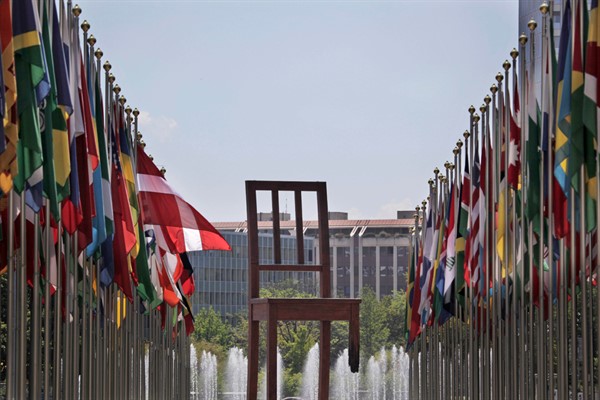While Americans commemorated their fallen soldiers on Memorial Day this week, a group of activists in Luxembourg were inaugurating a different kind of war memorial. Handicap International Belgium, that country’s chapter of an NGO originally dedicated to civilian victims of landmines, unveiled a sculpture by artist Manolis Manarakis commemorating the civilian dead of all modern wars. It was the latest in a series of monument unveilings, including another just last month in Brussels, meant not only to recognize civilian victims of war, but to underscore their absence in the global culture of war memorials.
In the United States, Memorial Day dates back to the post-Civil War era, when the war’s fallen soldiers were commemorated each year on what was once called “Decoration Day.” In addition to the over half-million combatant dead from that war, historian James McPherson estimates that 50,000 civilians died as well. Yet Memorial Day celebrations in the United States, even today, uniformly focus on the military casualties of America’s wars.
As civil wars go, America’s was remarkably disciplined, with both armies conducting most battles outside of civilian-populated areas. Not so in most civil wars today, where civilians often become the intentional targets of the belligerents. As political scientists Laia Balcells and Jessica Stanton write, rebel armies prey upon and terrorize civilians to enlist their support, while the governments fighting those rebels crack down on civilians perceived to be providing them with support. Other research shows how the fog of war creates cover for civilians to settle scores with one another as well, or to brutalize their own communities—and even loved ones—in the name of protecting them.

